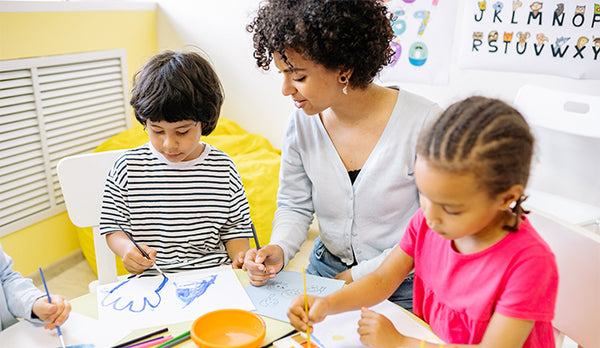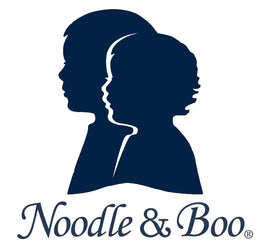
Resources: Edutopia, Zero to Three and Little Wonders Montessori
The idea of leaving mom and dad to attend preschool with new peers is very intimidating for many toddlers! As your child begins to prepare for the big jump into school, there are a few things that can make the transition easier and foster excitement for this huge milestone!
A great way to keep the focus on fun, is by incorporating the idea of preschool into pretend playtime together. Take turns being the student and teacher; act out common scenes like taking off your coat and placing your lunchbox in a cubby, sitting crisscross during circle time, and going out to recess. This will help your toddler feel more confident about what to expect.

Reading is one of the best ways to teach children about life and how the world works. Reading books with pictures about preschool will help them understand things they haven't yet seen or experienced. Take this opportunity to dive into how the characters are feeling, and ask how your child is feeling.
Practice some self-help skills like opening their lunchbox and poking a straw through their juice box! Have them repeat how to ask for help from the teacher, if they get stuck on something.
If possible, take a tour of the school together. Walk through the classrooms and find where the restroom is located, where the cubbies are, and meet their soon-to-be teacher! Visit the playground a few times, this promotes the idea that school is fun!
Pay attention to nonverbal messages. Even toddlers who can speak may struggle with properly articulating how they feel. "Your child may 'act out' his worry by clinging, becoming withdrawn, or by being more aggressive. Another common reaction as children take a big move forward is to actually move backward in other areas. For example, if your child is fully potty trained, he may start have toileting accidents. He may ask that you feed or dress him even though he can do these things by himself." Zero to Three

Attention Span
One of the most difficult aspects of participating in class is paying attention. Children aged 3 have an attention span of about 3-8 minutes, while children aged 4 can concentrate for about 5-10 minutes.
By the time they start going to school, it may increase to 15 minutes depending on the activity they are being engaged in.
"Whether it is eating food, scribbling on paper, playing their toys, or sitting on a chair without getting up, helping them increase their attention span will help them build life skills and participate in group learning activities at preschool." Little Wonders Montessori
Another reason to practice growing your child's attention span, is to keep their energy up. When a person is distracted or not paying attention, they get tired quickly. They use energy on unnecessary distractions and the main task does not get done.
Explore the activities below that help your toddler grow their attention span and increase concentration.
- Extend story time and discussion of characters, plots and moral takeaways.
- Encourage your toddler to play constructively in activities they already enjoy. In other words, what can they learn from playtime?
- Avoid letting them play with a smartphone or tablet. Screen time disturbs our circadian cycle and the stimulation from screen time is hard to match in real life, causing us to lose interest in activities quicker.
- Engaging your toddler in purposeful activities with an end goal gives them the satisfaction and confidence of completing a task successfully.
- Practice focusing on a single activity by removing nearby or visible distractions.
- Allow your toddler to wear their own clothes. Putting on clothes, especially in the right order, requires focus and gives a sense of control.
- Get those jitters out! Take brief breaks for active playtime.
- Take "attention breaks" where you teach your child what "paying attention" means and how it looks.
- Play memory games together.











Leave a comment